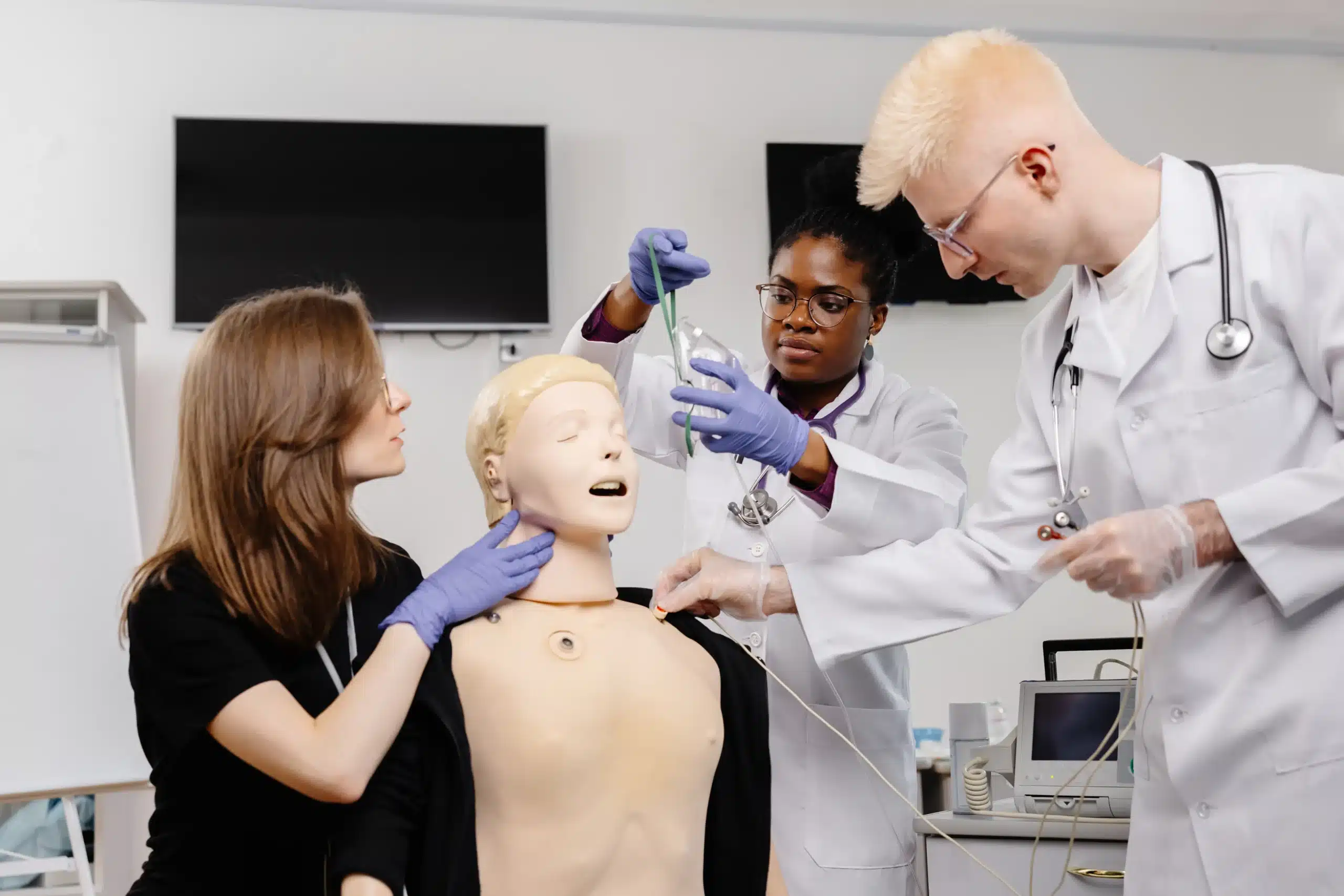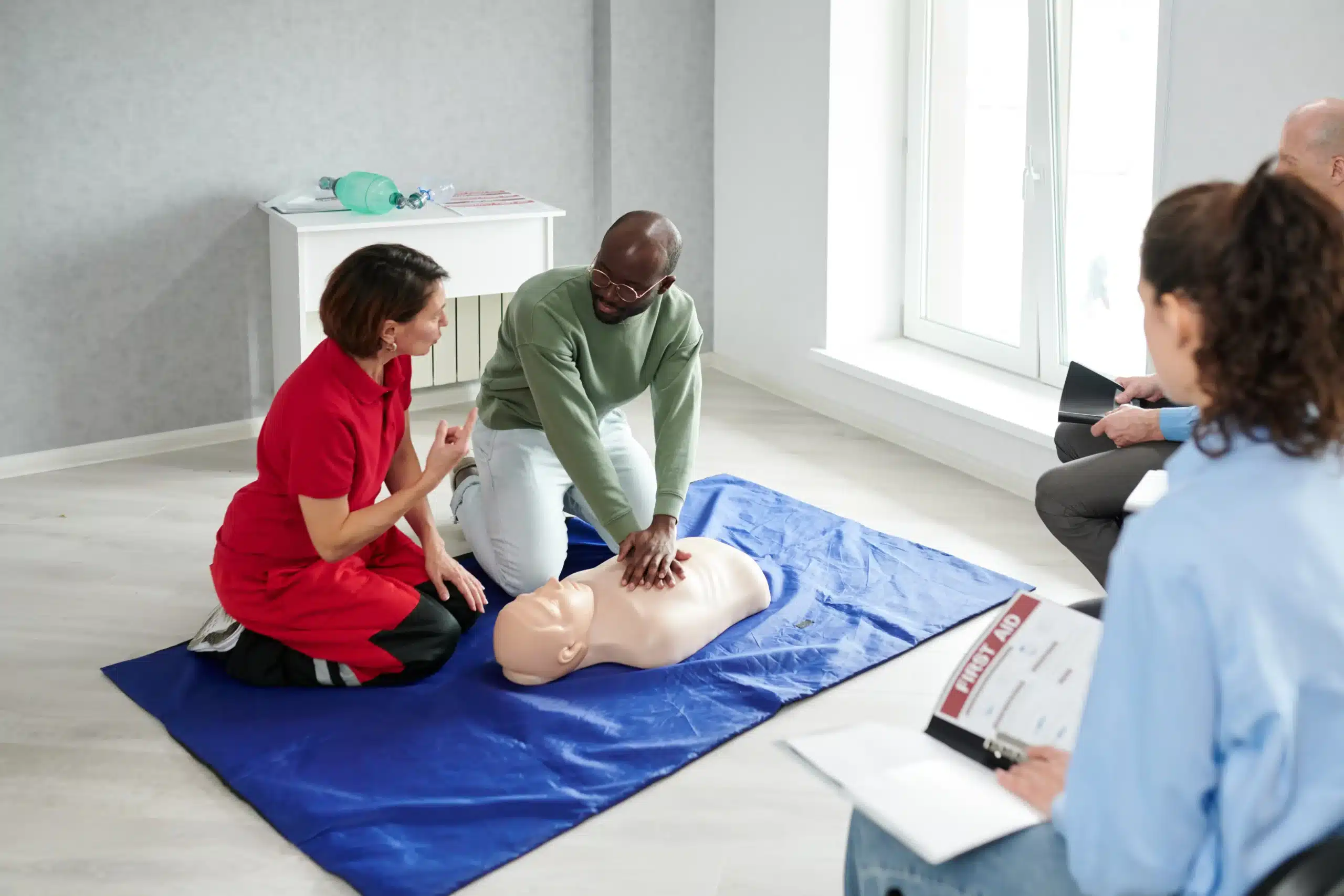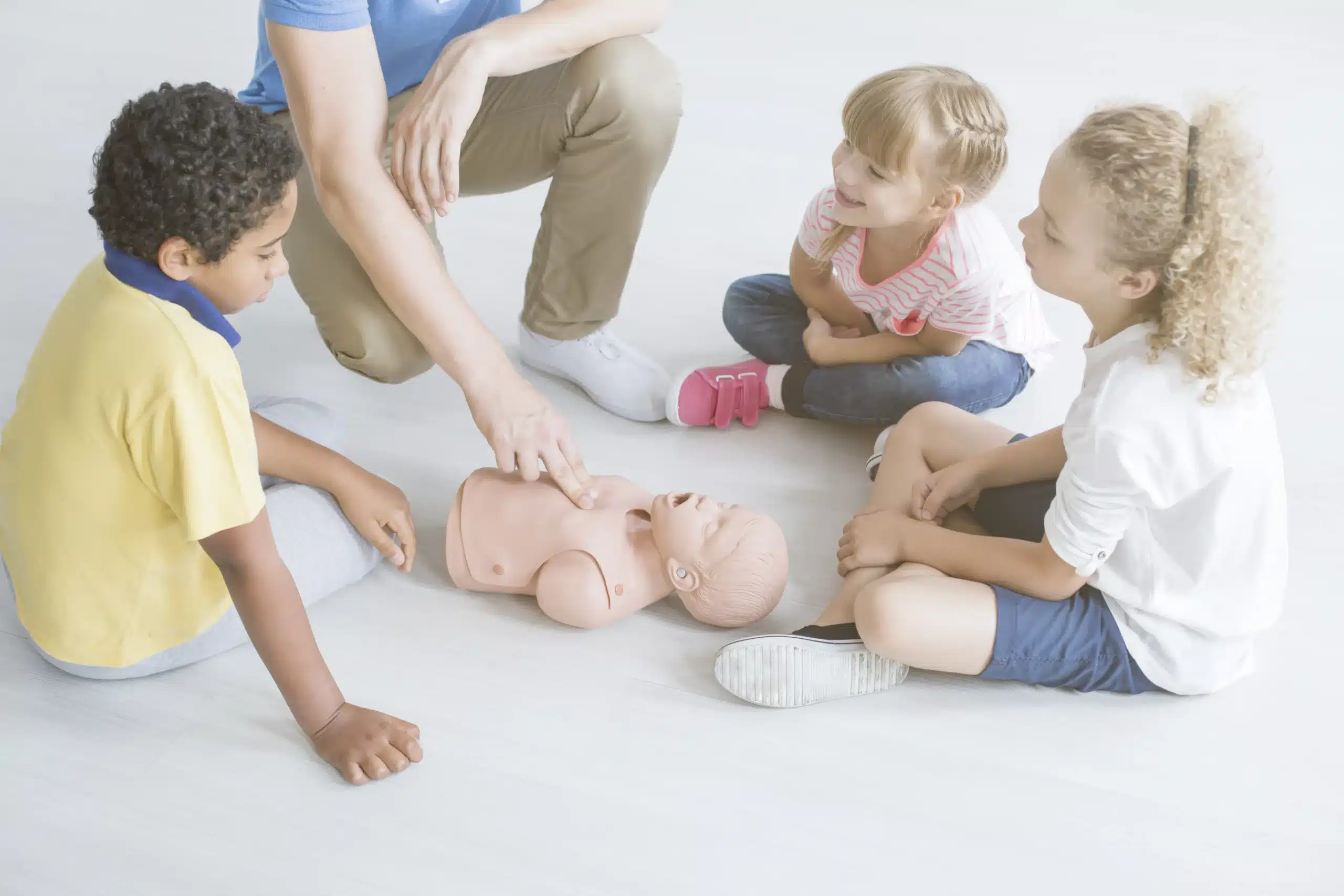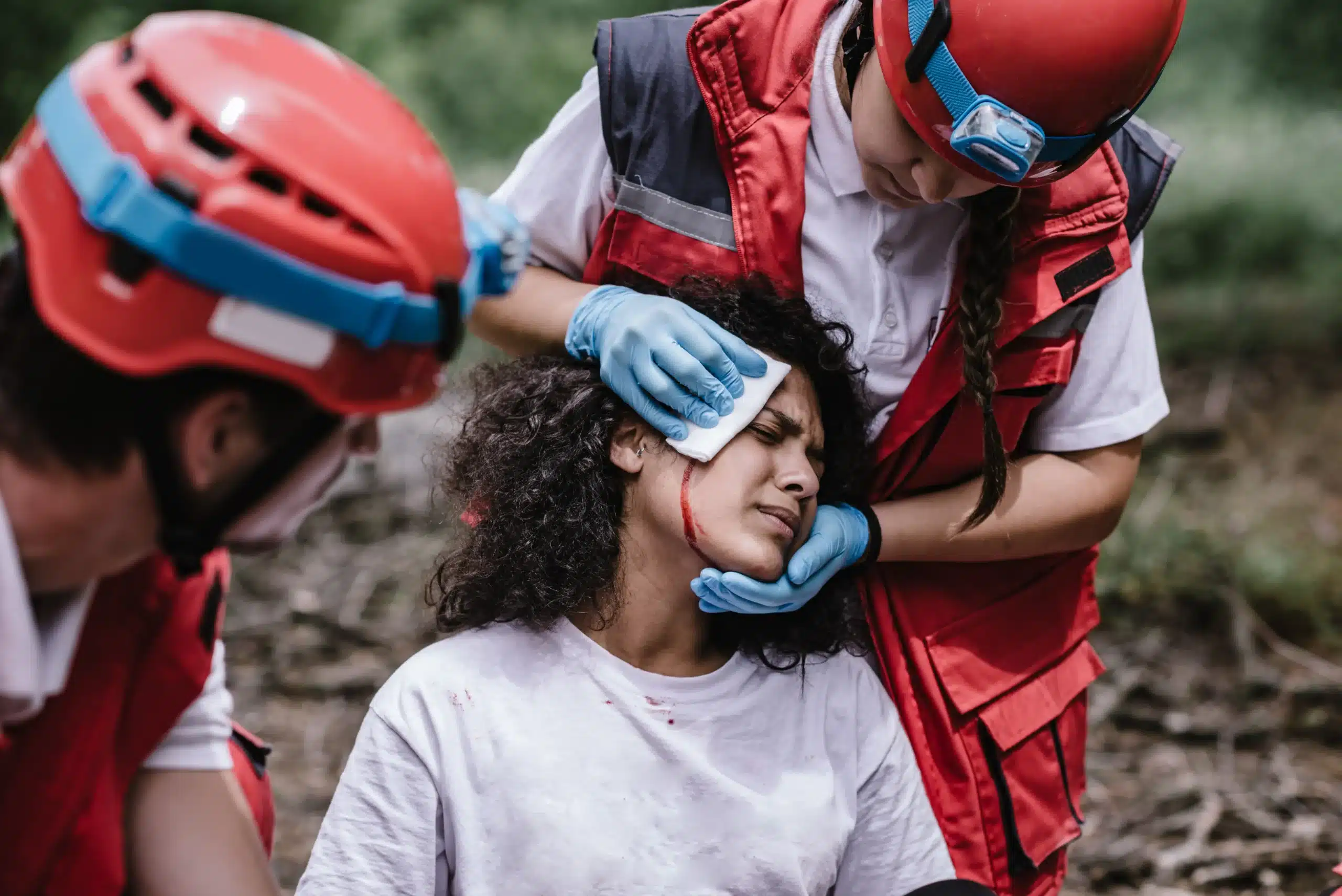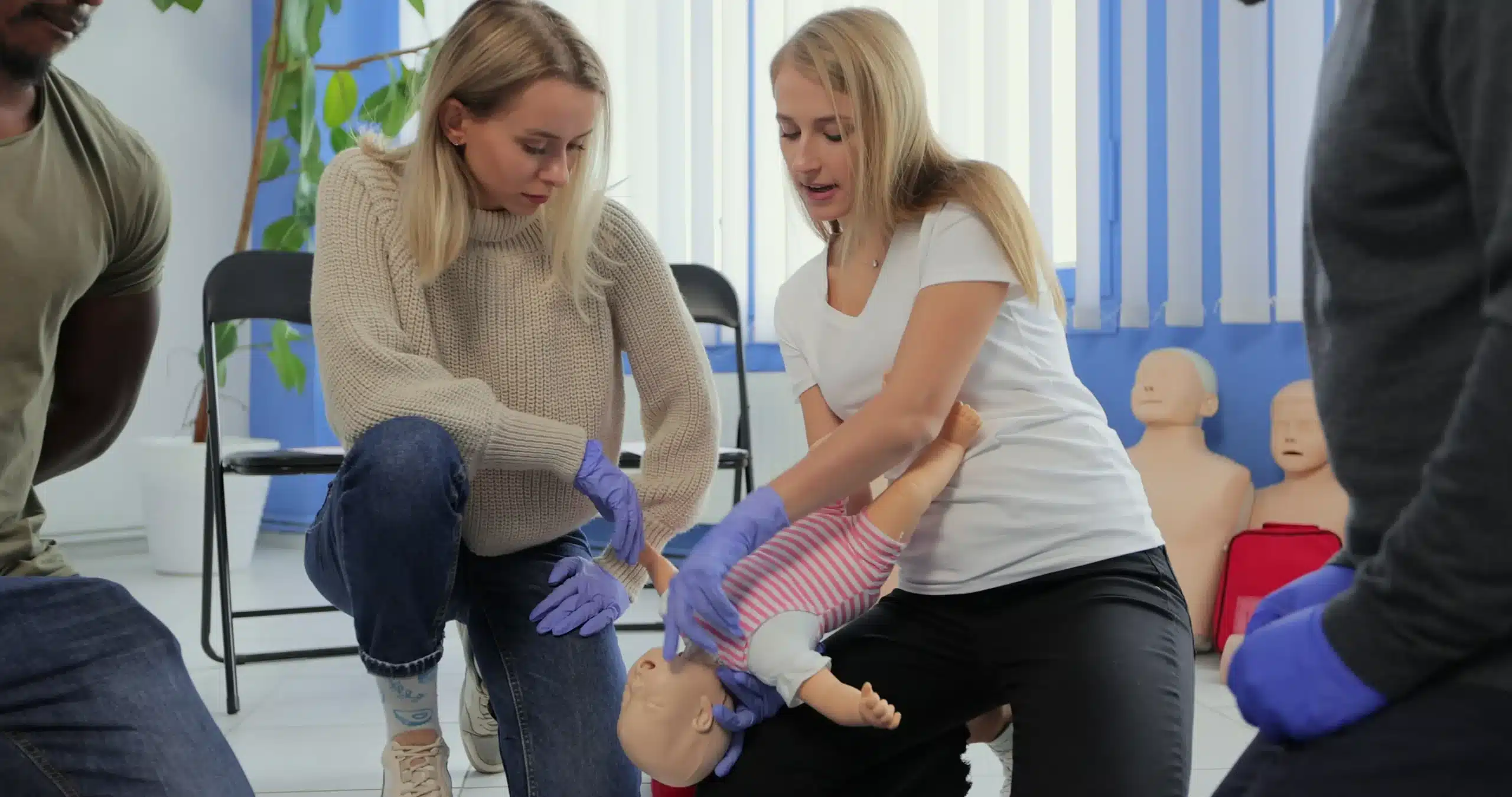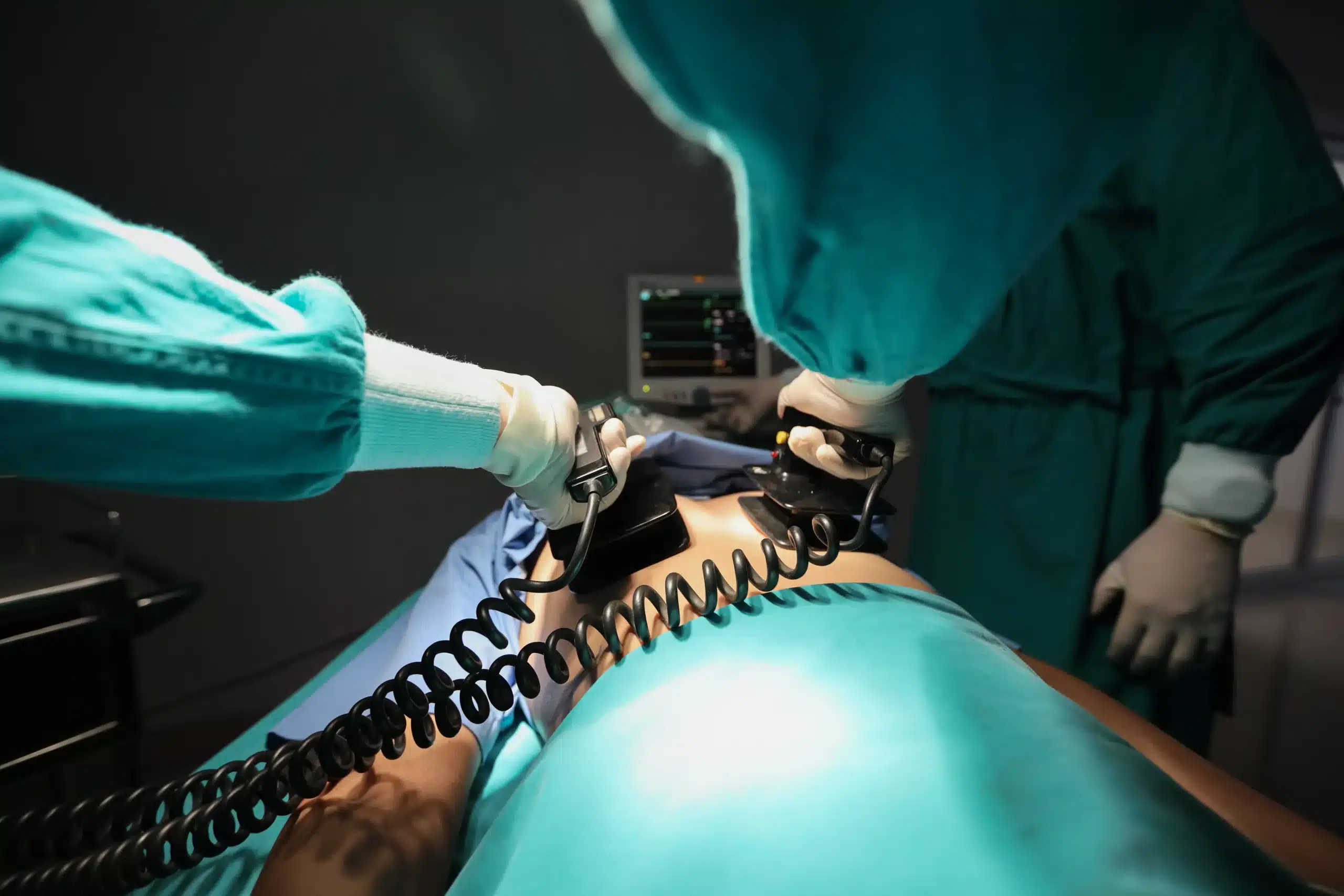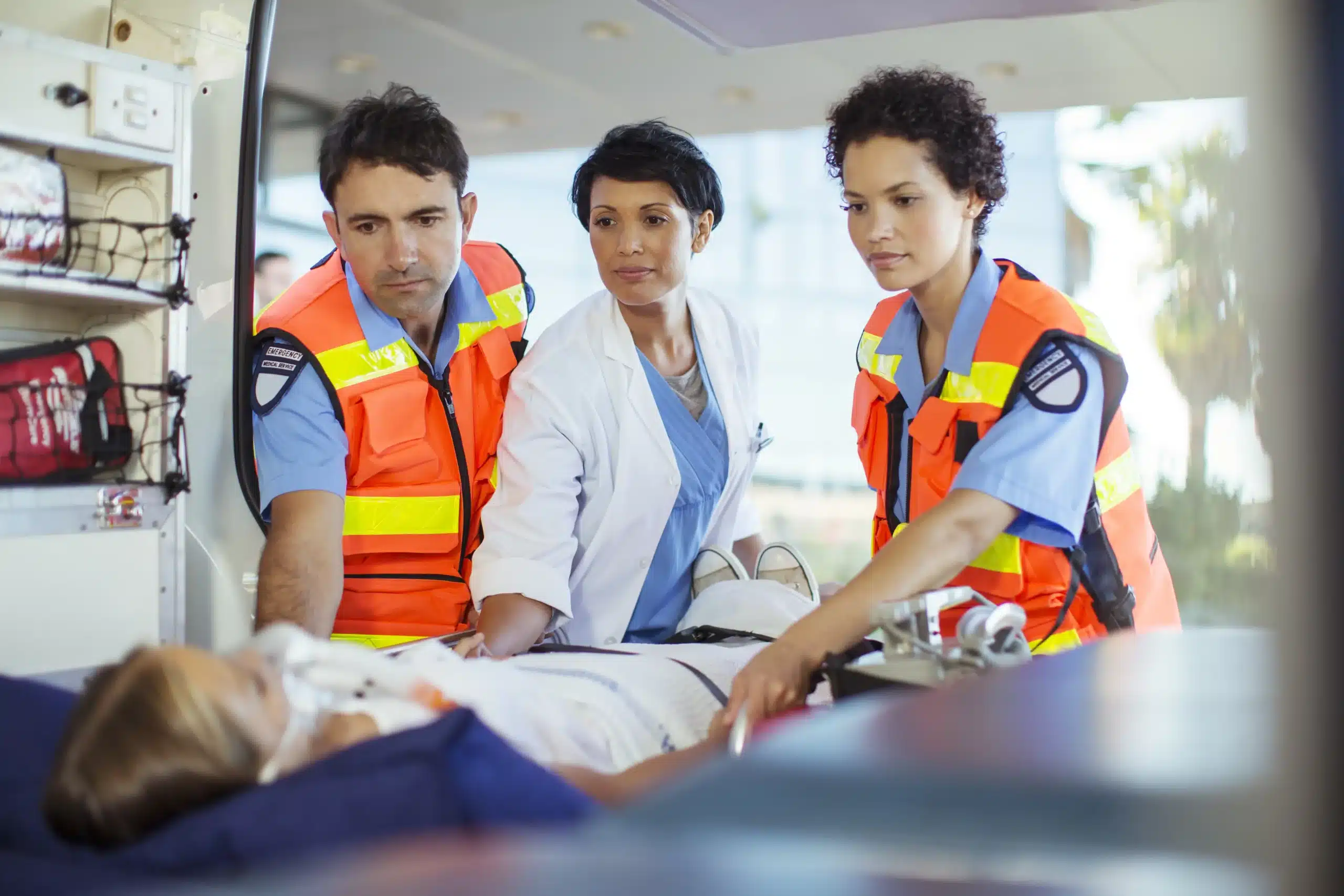Seconds matter during a medical emergency. Knowing how to perform CPR can be the difference between life and death. If you’re looking for CPR certification in Dublin, this comprehensive guide will walk you through everything you need to know. We’ll cover the various types of CPR courses available, the certification process, and how to choose the right training provider for your needs. Whether you’re a healthcare professional, a childcare provider, or simply someone who wants to be prepared for anything, this guide will help you find the perfect CPR certification course in Dublin.
Key Takeaways
- CPR certification empowers you to save lives: Learning CPR, whether you’re in healthcare or not, equips you to handle medical emergencies effectively. Explore options like those at Safety Training Seminars to find the right course.
- Select the ideal CPR course for your needs: Factors like your profession, preferred learning style, and budget should guide your choice of a CPR course. Consider accredited providers like Safety Training Seminars, which offer everything from basic to advanced life support training.
- Stay current with your CPR skills: Renew your certification every two years to maintain proficiency and learn the latest techniques. Safety Training Seminars provides convenient renewal courses and programs like RQI for easy recertification.
What is CPR Certification & Why Do You Need It?
CPR certification proves you can perform cardiopulmonary resuscitation (CPR) and, in many cases, use an automated external defibrillator (AED). It’s a vital skill for anyone who might encounter a cardiac emergency, giving you the tools to potentially save a life. Think of it as equipping yourself to handle a medical crisis before professional help arrives. CPR training gives you the knowledge and skills to act quickly and confidently in life-threatening situations.
Why get certified? CPR certification teaches you the most up-to-date, evidence-based techniques. Plus, renewing your CPR certification ensures you’re always using the latest methods. This isn’t just for healthcare providers—anyone can benefit from knowing how to respond effectively in a crisis. From parents and teachers to coaches and caregivers, CPR training empowers you to take action when seconds count. Regular renewal keeps you sharp and confident, so you’re always prepared to provide the best possible care. Ultimately, CPR certification gives you the confidence to act when it matters most, potentially making a real difference. Consider getting certified—it’s an investment in yourself and your community.
CPR Certification Courses in Dublin
Dublin offers various CPR certification courses catering to different needs, from basic life support for the community to advanced training for healthcare providers. Let’s explore some of the key courses available:
BLS
The Basic Life Support (BLS) course for Healthcare Providers equips professionals with the skills to address life-threatening emergencies. You’ll learn to recognize emergencies, perform CPR, use an AED, and relieve choking. This training is crucial for healthcare professionals in various medical settings. Safety Training Seminars offers BLS certification among its comprehensive courses.
Adult & Pediatric CPR/AED
This course combines adult and pediatric CPR training with AED instruction. It’s an excellent choice for anyone wanting to be prepared for medical emergencies, including parents, teachers, and coaches. Providers like CPR Education offer this combined CPR/AED training in Dublin. For those seeking a local option, consider checking out the courses available at Safety Training Seminars.
First Aid
First Aid certification teaches you how to respond to common injuries and illnesses, covering essential skills like wound care, managing bleeding, and treating burns. Often paired with CPR training, First Aid certification is valuable for anyone, especially those working with children or in higher-risk environments. Safety Training Seminars offers combined CPR and First Aid certification.
ACLS
Advanced Cardiovascular Life Support (ACLS) training is for healthcare professionals who manage cardiovascular emergencies, including cardiac arrest. Building upon BLS skills, this advanced course covers airway management, pharmacology, and ECG interpretation. Safety Training Seminars offers ACLS certification. You can also check with your employer or professional organization for other recommended ACLS providers.
PALS
Pediatric Advanced Life Support (PALS) is a specialized course for healthcare providers responding to emergencies involving infants and children. This course focuses on the unique physiological differences between children and adults, teaching specific techniques for pediatric resuscitation. Safety Training Seminars also provides PALS certification.
Top Dublin CPR Certification Providers
Finding the right CPR certification course can feel overwhelming. To help you, we’ve compiled a list of trusted providers in Dublin. Remember to confirm details like pricing and course schedules directly with each provider, as these can change.
Safety Training Seminars
Safety Training Seminars in Dublin offers a range of courses, including CPR, BLS, ACLS, PALS, and First Aid. They are known for their competitive pricing, convenient schedules, and low-price guarantee. If you’re searching for a CPR class nearby, Safety Training Seminars serves Dublin, Livermore, and Mountain House. They also offer the RQI program for quick and easy BLS and ACLS recertification. For larger groups, check out their discount group classes. Beyond standard CPR certifications, they also provide the EMSA Child Care Health & Safety training.
American Red Cross
The American Red Cross offers CPR/AED classes in Dublin taught by their certified instructors. They emphasize maintaining your skills, as studies show proficiency can decrease within months of your initial training. Find their CPR/AED classes and other safety courses on their website.
American Heart Association
Safety Training Seminars is also an authorized American Heart Association Training Center, offering various AHA courses, including BLS, ACLS, PALS, CPR, and First Aid in Dublin. They prioritize providing high-quality training and certification through their AHA-certified courses.
CPR Education
CPR Education offers CPR training in Dublin, emphasizing quality instruction. They work with residents, businesses, and employees, offering various courses to fit different needs. Explore their CPR training programs on their website.
Compare CPR Course Costs
Shopping for CPR certification? It’s smart to compare costs, but remember, the cheapest option isn’t always the best. Several factors influence pricing, and understanding them helps you find the right balance of quality and value.
Factors Affecting Price
Course content plays a big role in pricing. A comprehensive course covering CPR and First Aid will likely cost more than a basic CPR-only class. The type of certification also matters. For example, certifications like ACLS (Advanced Cardiovascular Life Support) or PALS (Pediatric Advanced Life Support) are more specialized and often have a higher price tag. In addition, the training provider’s location and reputation can also influence cost. Look for providers who are transparent about their pricing and what’s included in their courses.
Average Course Costs
CPR course costs in Dublin can vary. Basic CPR classes might start around $50, while more advanced courses, like ACLS, can be upwards of $150. It’s always a good idea to check directly with providers like Safety Training Seminars for their latest pricing. They even offer a low price guarantee, giving you confidence that you’re getting a good deal.
What Fees Include
Before you sign up, make sure you know exactly what the course fee covers. Typically, it includes instruction, course materials (like manuals or online resources), and your certification card. Some providers might have additional charges for things like replacement cards or online access, so it’s always best to ask upfront. Safety Training Seminars is transparent about what their courses include, offering American Heart Association-certified training.
Discounts & Promotions
Many training centers offer discounts, especially for groups or returning students. Keep an eye out for special promotions or seasonal deals. Safety Training Seminars frequently offers discounts for groups, making it a cost-effective choice for workplaces or community organizations. Check their website or contact them directly to see what current offers are available.
Course Length & Format
Finding the right CPR class often comes down to format and scheduling. Luckily, there are several options to fit your needs. Let’s break them down:
In-Person Training
Traditional in-person CPR training typically lasts between two and four hours. This format provides hands-on learning and direct interaction with an instructor. It’s a great option for those who prefer a structured, face-to-face learning environment and have the time to commit to a longer session. At Safety Training Seminars, we prioritize small class sizes for more personalized instruction and feedback during these sessions.
Online Certification
For those short on time or who prefer learning at their own pace, online certification is a convenient choice. The American Heart Association offers Heartsaver® eLearning courses that allow you to complete the coursework online, followed by a virtual skills session with an instructor. This blended approach combines the flexibility of online learning with the essential hands-on practice.
Blended Learning
Blended learning combines the best of both worlds. You’ll complete the coursework online at your convenience, then attend a shorter in-person session at Safety Training Seminars to practice your skills and receive your certification. This option offers a balance between flexibility and hands-on training.
RQI Program at Safety Training Seminars
Healthcare professionals looking for a streamlined certification process should consider the RQI program offered by Safety Training Seminars. This program is designed for efficient renewal and maintenance of BLS, ACLS, and PALS certifications, allowing professionals to stay current with their qualifications quickly and easily.
Flexible Scheduling
We understand busy schedules can make finding the right class time difficult. Safety Training Seminars offers flexible scheduling options, including weekday and weekend classes, as well as online, blended learning, and instructor-led courses. This variety makes it easier to fit CPR training into your life. We also offer group discounts, making it a cost-effective solution for workplaces or community groups.
Instructor Qualifications
Knowing your instructor’s qualifications can give you confidence in your training. Look for these key qualities when choosing a CPR class:
Emergency Services Background
Instructors with experience in emergency services bring a valuable perspective to the classroom. Many CPR instructors are active or retired firefighters, paramedics, or EMTs. This real-world experience allows them to provide practical insights and answer your questions about applying CPR skills in actual emergencies. For example, some CPR course providers, like CPR Education, often highlight instructors with emergency services backgrounds.
Teaching Certifications
Beyond field experience, ensure your instructor holds the necessary teaching certifications. Qualified instructors understand how to present information effectively and adapt their teaching style to different learning preferences. They should be comfortable teaching both certified healthcare professionals and those new to medical training. Look for programs, such as those offered by Heart Safety Solutions, that emphasize instructor certifications for their Basic Life Support (BLS) courses. This ensures a high-quality learning experience for all participants.
Real-World CPR Experience
While certifications are essential, real-world CPR experience adds another layer of expertise. Instructors who have performed CPR in actual emergencies can offer unique perspectives and practical tips that go beyond the textbook. They can share real-life scenarios, discuss common challenges, and provide valuable insights into the emotional aspects of performing CPR. Quest Safety Training discusses the importance of real-world experience when choosing a CPR certification course. This experience can make your training more engaging and impactful, giving you the confidence to act in a real emergency.
Get CPR Certified: The Process
Getting CPR certified is straightforward and empowers you to make a real difference in an emergency. Here’s what you can expect at Safety Training Seminars:
What Happens in Training
CPR training blends theory and hands-on practice. You’ll learn the fundamentals of CPR, including how to recognize cardiac arrest, perform chest compressions, give rescue breaths, and use an automated external defibrillator (AED). Expect interactive sessions, demonstrations, and practice scenarios. These CPR classes use simulations and educational materials to build your confidence and equip you with life-saving techniques. We emphasize a supportive learning environment where you can ask questions and practice until you feel comfortable.
Exams & Practical Assessments
Your CPR course will include both a written exam and a practical assessment. The written portion tests your understanding of key concepts, while the practical assessment evaluates your ability to perform CPR correctly. Instructors provide guidance and feedback throughout the process. These assessments ensure you’re fully prepared to respond effectively in a real-life emergency. Successful completion of both components is required for certification.
Certification Cards
Once you pass the exam and practical assessment, you’ll receive your CPR certification card. This card is proof of your qualification and is typically valid for two years. Keep your card in a safe place and remember to renew it to maintain your skills and credentials. Our certifications meet American Heart Association guidelines and are valid for two years, giving you peace of mind knowing you’re prepared for anything.
Maintain Your CPR Certification
Keeping your CPR skills sharp is crucial. But how often do you need to renew your certification, and why is staying up-to-date so important? Let’s break it down.
How Long is Certification Valid?
CPR certifications are typically valid for two years. This timeframe helps ensure rescuers maintain a working knowledge of life-saving techniques. After two years, it’s time to refresh your skills and learn any updated guidelines by renewing your CPR certification. At Safety Training Seminars, our certifications are valid for two years, aligning with industry standards.
Renew Your Certification
Renewing your certification is straightforward. Organizations like the American Heart Association offer renewal courses covering essential material and incorporating new guidelines and best practices. After successfully completing the renewal course and assessments, you’ll receive an updated certification card, valid for another two years. Safety Training Seminars offers various renewal courses to fit your schedule and needs.
Stay Up-to-Date
Staying current with CPR techniques is vital for effective emergency care. Medical knowledge and best practices are always evolving, so regular renewal ensures you’re using the most current, evidence-based techniques. Renewing your certification equips you with the latest knowledge and skills to confidently respond to a crisis. This commitment to high-quality care is especially important for healthcare professionals and childcare providers. Contact Safety Training Seminars to learn more about how staying up-to-date can benefit you.
Choose the Right CPR Course
Knowing which CPR course best suits your needs can feel overwhelming with so many options. This section breaks down the different types of CPR courses available in Dublin, so you can confidently choose the right one for you.
For Healthcare Professionals
Healthcare professionals, including doctors, nurses, EMTs, and other medical personnel, need specialized training. BLS for Healthcare Providers covers core life support skills like CPR, AED use, and how to relieve choking for adults, children, and infants. These courses often include advanced airway management techniques and training in team dynamics, crucial for responding to emergencies in a clinical setting. Heart Safety Solutions offers comprehensive training designed for various healthcare professionals, focusing on recognizing life-threatening emergencies and providing timely interventions. NBTS.ie also offers an Irish Heart Certified BLS course with hands-on practice in CPR and defibrillation.
For Everyone Else
Even if you’re not a medical professional, learning CPR is invaluable. CPR and first aid training empowers you to respond effectively during emergencies, providing essential care until professional help arrives. This knowledge can significantly increase the chances of survival for someone experiencing cardiac arrest. CPR Classes St. Petersburg emphasizes the importance of bystander CPR.
Accreditation & Recognition
Choosing a course accredited by a recognized organization like the American Heart Association ensures your certification is widely accepted. Safety Training Seminars in Dublin offers AHA-certified courses and boasts a low-price guarantee, making quality training accessible. For healthcare providers seeking a streamlined certification or renewal process, the American Heart Association’s RQI program is a popular choice for maintaining BLS, ACLS, and PALS certifications.
Course Content & Practical Skills
CPR courses vary in length and content. Basic CPR certification typically takes a few hours, covering essential skills like chest compressions, rescue breaths, and AED use. More advanced courses, such as ACLS and PALS, cover specialized techniques for treating specific medical emergencies. The American Red Cross offers various course formats, including online, in-person, and blended learning options, allowing you to choose the format that best fits your schedule. CPR Certification Now offers helpful information on the typical duration of different CPR classes. Look for courses that emphasize hands-on practice and provide opportunities to develop your skills.
CPR Training Myths
Let’s clear up some common misconceptions about CPR training. These myths can prevent people from seeking certification, so let’s set the record straight.
Is CPR Just for Healthcare Pros?
One of the biggest misunderstandings about CPR is that it’s only for doctors and nurses. This simply isn’t true. Anyone can—and should—learn CPR. From stay-at-home parents and teachers to office workers and construction workers, CPR is a valuable life skill. Think of it as a form of first aid; you never know when you might need it. Bystander CPR can dramatically improve survival rates during emergencies. Learn more about our CPR and First Aid Certification courses.
Does CPR Always Save Lives?
While CPR is a powerful tool, it’s important to have realistic expectations. CPR doesn’t guarantee survival, but it significantly increases the odds. The success of CPR depends on several factors, including how quickly it’s started and the nature of the cardiac arrest. Even if CPR doesn’t restart someone’s heart, it can still help by maintaining oxygen flow to the brain until paramedics arrive. This can minimize potential brain damage. For more information on how CPR works, explore our First Aid Certification options.
Is Hands-Only CPR Effective?
Absolutely. Hands-only CPR has been shown to be just as effective as traditional CPR with rescue breaths for adults experiencing cardiac arrest. This makes it a less intimidating option for many people and empowers more bystanders to act quickly in an emergency. If you’re hesitant about mouth-to-mouth resuscitation, learning hands-only CPR is a great alternative. You can find more information on our CPR and First Aid page.
Related Articles
- Why CPR is Essential in Healthcare (and How to Get Certified)
- Find CPR Classes in Dublin: Your Complete Guide – Livermore CPR Classes
- CPR Certification in Livermore: Your Complete Guide – Livermore CPR Classes
- Debunking Common CPR Myths Saving Lives With Facts
- BLS Classes in Dublin: Your Complete Guide – Livermore CPR Classes
Frequently Asked Questions
What’s the difference between CPR and First Aid? CPR focuses specifically on life-threatening situations like cardiac arrest and choking. It involves chest compressions and rescue breaths (or hands-only CPR) to keep oxygenated blood flowing to the brain. First Aid covers a broader range of injuries and illnesses, from cuts and burns to allergic reactions and sprains. It teaches you how to assess a situation, provide immediate care, and when to seek professional medical help. Often, CPR and First Aid training are combined into one course.
How do I choose the right CPR class for me? Consider your specific needs and background. If you’re a healthcare provider, you’ll need a BLS for Healthcare Providers course, possibly along with ACLS and PALS. If you’re not in healthcare, a standard CPR/AED and First Aid course is a great option. Think about your learning style, too. Do you prefer in-person classes, online learning, or a blended approach? Check out the course options at Safety Training Seminars—they offer a variety of formats and schedules.
How much does CPR certification cost? CPR course costs vary depending on the provider, location, and course content. Basic CPR classes tend to be more affordable than advanced certifications like ACLS or PALS. Look for providers who offer transparent pricing and consider any discounts available, such as group rates. Safety Training Seminars offers competitive pricing and a low-price guarantee.
What if I’m nervous about performing CPR in a real emergency? It’s completely normal to feel apprehensive. CPR training prepares you with the knowledge and skills to act confidently, even under pressure. Hands-on practice during the course helps build muscle memory and reduces hesitation. Remember, any attempt at CPR is better than none. You’re learning these skills to potentially save a life, and even basic CPR can make a difference.
How can I keep my CPR skills current after getting certified? CPR guidelines and best practices can change, so renewing your certification every two years is essential. Renewal courses reinforce your skills and introduce any updates to techniques. Consider the RQI program at Safety Training Seminars for a streamlined renewal process. Staying current ensures you’re always prepared to provide the most effective care in an emergency.
